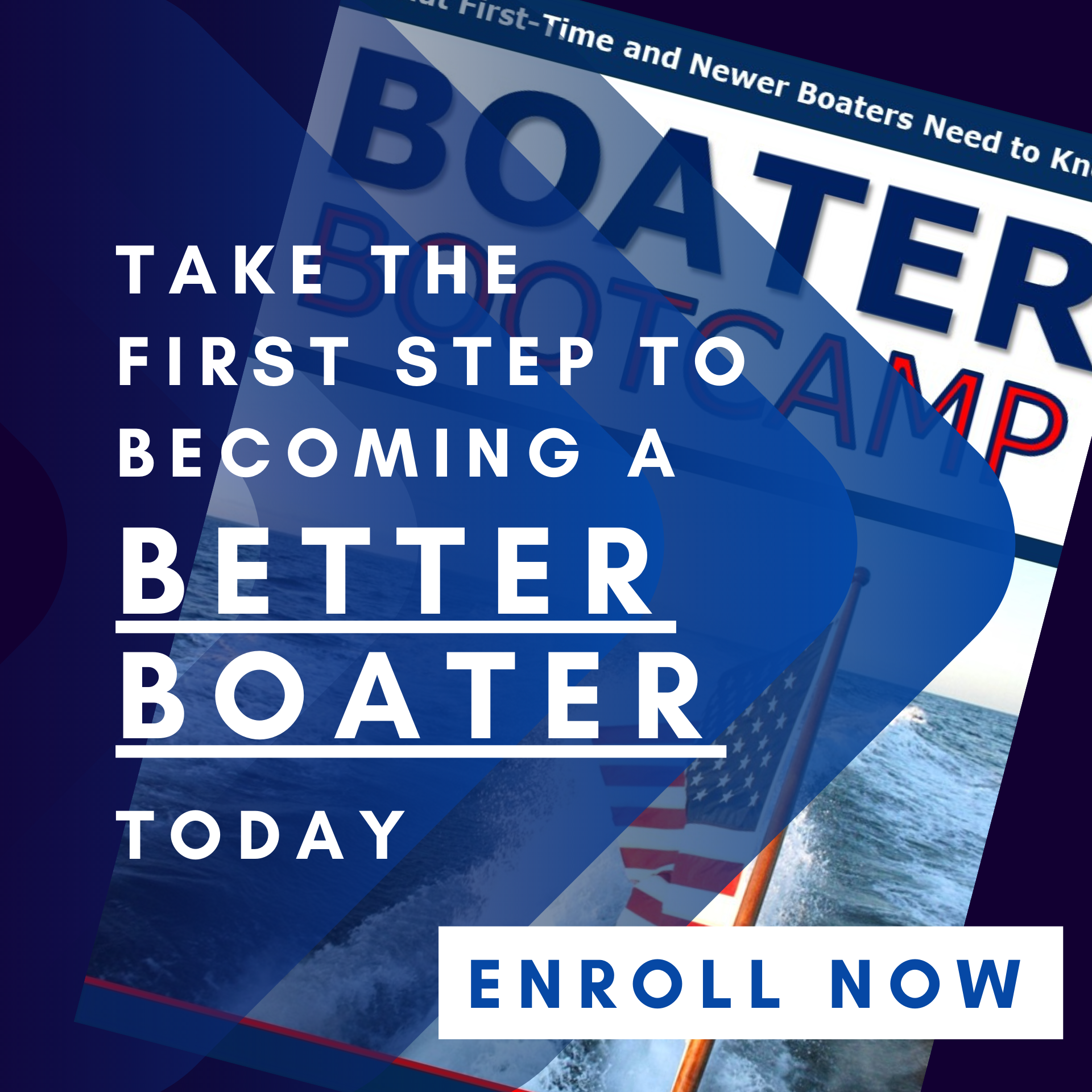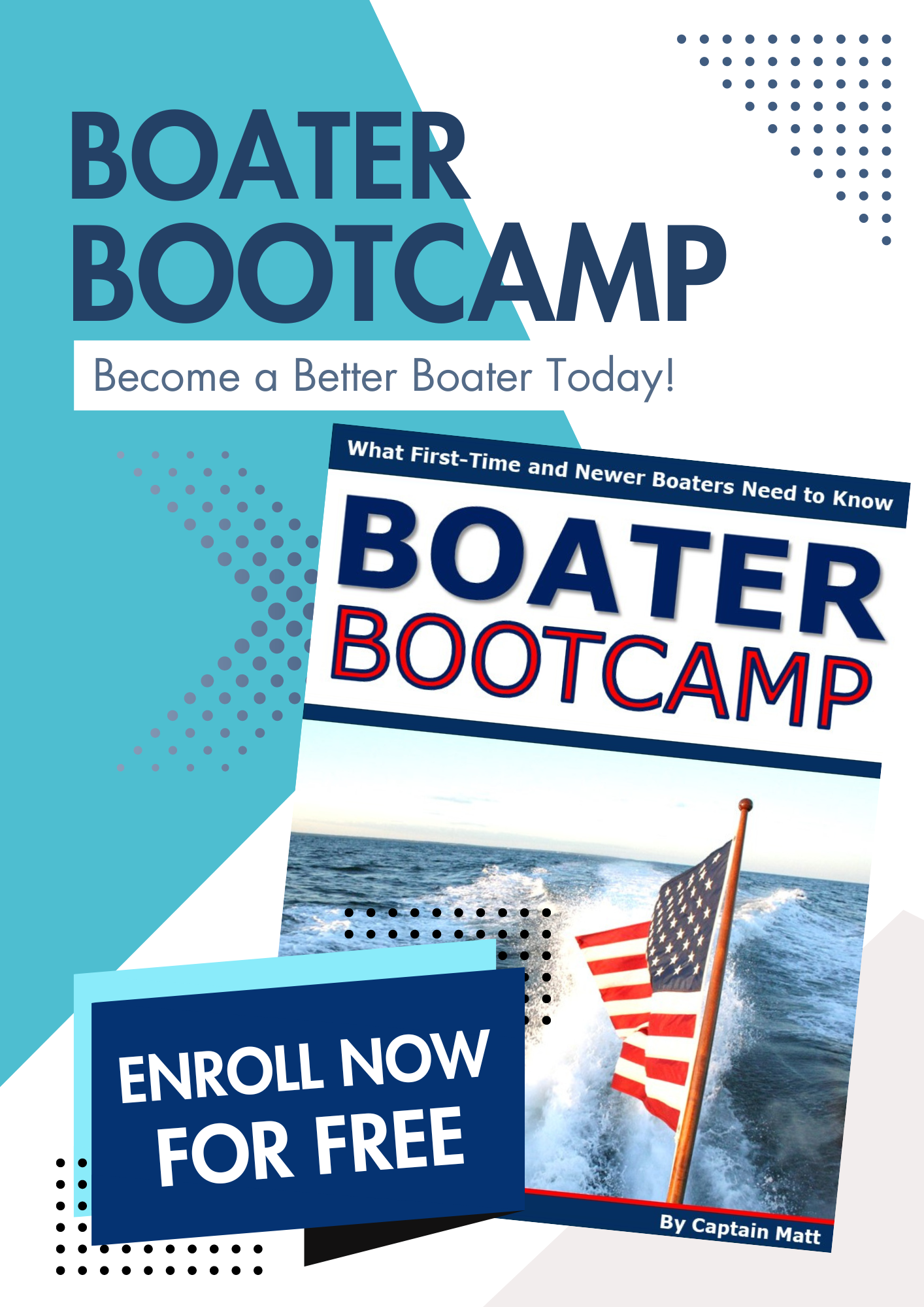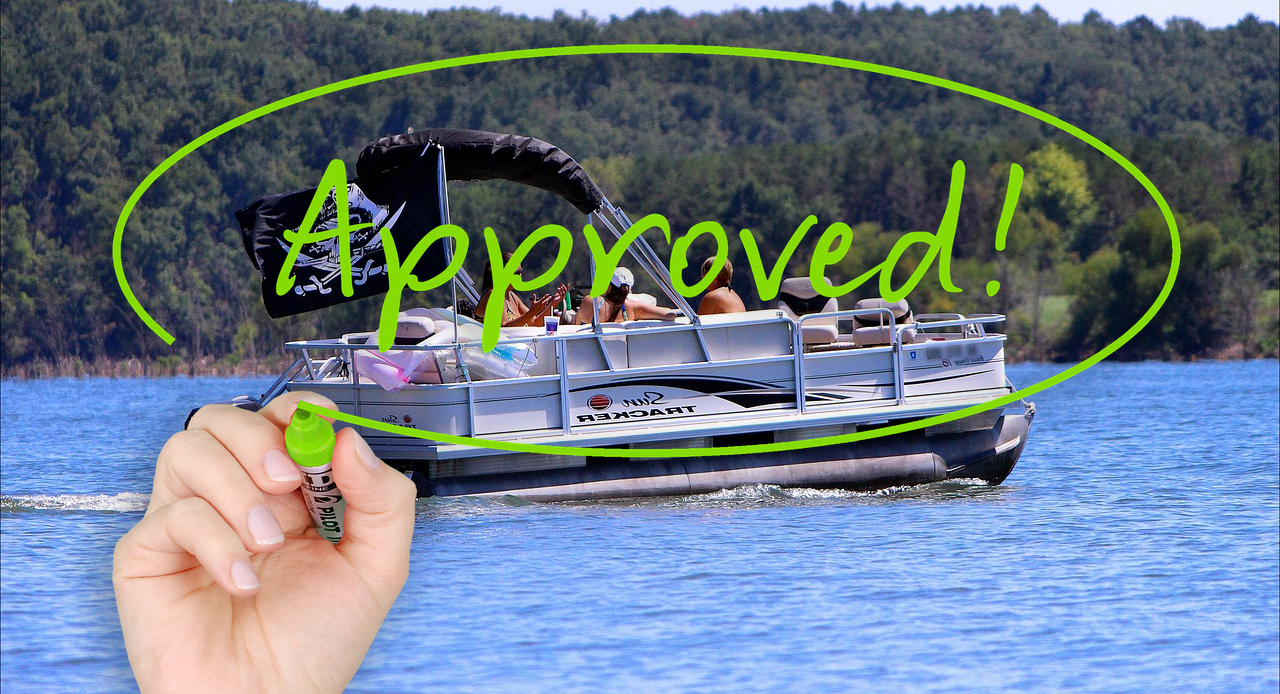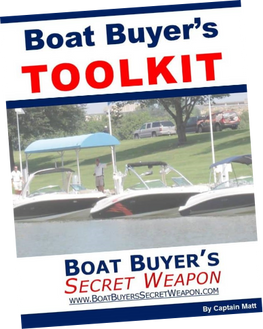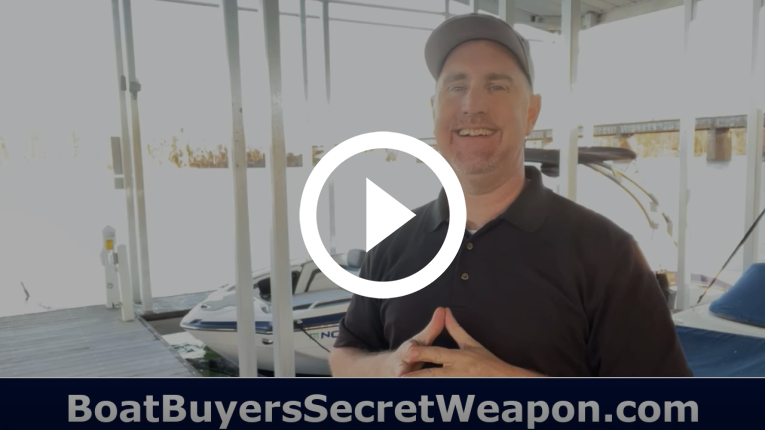When considering buying a used boat, one of the first questions that comes up is, what if I was going to finance this boat.
So, how boat loans work? What down payments are? How long with they extend the payments? What credit score do I need? What if you’re buying from a private seller or boat dealer?
I’ll share what I discovered while helping hundreds of people buying used boats. It will help you get the best boat loan, understand exactly how they work and how to avoid the mistakes others have made that cause delays and stress.
Boat loans are secured by the boat, motor and trailer and require a 10% down payment with terms from 7 to 20 years depending on the amount financed. Interest rates range from 5.49% to 18% depending on credit, age of vessel and down payment and change based on market conditions.
The process of getting a boat loan varies when buying from a boat dealer or private seller. Keep reading and you’ll discover some insider information that will help you save money and avoid major headaches.
Because most used boats are bought from private sellers and these loans can be slightly tougher, we’ll start there.
Process of Getting a Used Boat Loan (Private Seller):
- Get Credit Approval (income and credit score)
Getting credit approval is all about if you and your financial situation qualify for the loan. They will typically require a credit score over 680, however some lenders offer loans to 580 credit scores with larger down payments.
Another portion of the credit approval process is checking your debt to income ratio with the new loan payment. They will check your gross income vs your total monthly debt payments (including rent/mortgage, credit card minimum payments, car payment, etc). Often, the lender will ask for proof of income via pay stubs and possibly w-2s.
If self-employed, they may require tax returns.
If financing over $500,000, they may also require proof of assets.
- Get Collateral Approved (Boat, Motor & Trailer)
When buying a used boat from a private seller, the lender will want to verify information about the boat, motor and trailer. Specifically, year, make, model and options of each.
The lender will determine the value of the boat for lending purposes and will set their maximum loan amount accordingly. This typically falls in line of 10% down with excellent credit and a well negotiated sales price. (check out the magic money saving method to avoid paying too much for your boat)
If credit is not perfect, the down payment amount will be 20% or more.
The lender will also require copies of the titles for the boat, motor(s) and trailer to confirm all serial numbers. They may also request a photo or personal inspection of the boat and serial numbers prior to funding the loan.
At times, a lender may require a survey of the vessel. This is more typical on larger loan amounts and larger vessels. Surveys are typically $20 to $25 per foot.
If there is a lien on the boat, they will want to verify that information with the seller’s lender.
- Request Outstanding Loan Payoff (if no clear title)
When buying a used boat from a private seller that has an outstanding loan balance, your lender will need an up to date payoff prior to giving final approval to create the documents for your purchase and loan.
If the seller owes more than the sales price, they will be required to bring funds to the closing.
- Process Closing Paperwork for Buyer & Seller
Getting to this point can take a few days from application if all documentation is provided in a timely manner. In some cases, it could take a week or longer if issues come up.
Things that can delay the closing is not providing requested documents, the sellers lender not providing the complete payoff or a delay in surveying.
- Sign Documents and Provide Down Payment Funds (may require a notary)
Once your loan has been fully approved and cleared for closing, its time to sign the documents. The seller will have some documents to sign (and if they need to bring additional cash for closing, it will need to be in certified funds or a wire).
Some of the seller’s documents may need to be notarized.
As the buyer, you will need to sign your documents and return them based on the instructions provided by your lender.
Coordinating this signing with the seller, your lender and taking delivery of your new to you boat can be a little stressful, just remember what’s on the other side of this day!
Tons of boating fun!
- Loan Funding, Payoff Outstanding Loan and Disbursement to Private Seller
Once the loan paperwork has been returned and approved by your lender, the funds will be released. The time varies lender by lender but could be released as soon as the next business day or if 5 business days.
- Start Enjoying Your Boat
Now, it's time to let the fun begin.
Click here if you'd like to see if we have a boat loan provider that can help you.
Process of Getting A Used Boat Loan (Boat Dealer):
- Get Credit Approval (income and credit score)
Getting credit approval is all about if you and your financial situation qualify for the loan. They will typically require a credit score over 680 however some lenders offer loans to 580 credit scores with larger down payments.
Another portion of the credit approval process is checking your debt to income ratio with the new boat loan payment. They will check your gross income vs your total monthly debt payments (including rent/mortgage, credit card minimum payments, car payment, etc). Often, the lender will ask for proof of income via pay stubs and possibly w-2s.
If self-employed, they may also require tax returns.
If financing over $500,000, they may also require proof of assets.
- Get Collateral Approved (Boat, Motor & Trailer)
The dealer should provide all necessary information about the boat, motor and trailer. Specifically, year, make, model and options of each.
The lender will then determine the value of the boat for lending purposes and will set their maximum loan amount accordingly. This typically falls in line of 10% down with excellent credit and a well negotiated sales price.
If your credit is not perfect, the down payment amount will be 20% or more.
At times, a lender may require a survey of the vessel. This is more typical on larger loan amounts and large vessels. Surveys are typically $20 to $25 per foot.
- Dealer will Process Closing Paperwork
Because the dealer has a relationship with the lender and they handle similar paperwork on a weekly basis, this portion is typically smooth.
As a precaution, be sure to review all paperwork completely to ensure there are no mistakes or unexpected expenses that pop up.
- Sign Documents and Provide Down Payment Funds (may require a notary)
When working with a dealer, they may request funds in a certain manner, certified check or more likely a wire directly to their account. If they require a wire, remember it takes a full day to post to their account. This can be a problem if you want to take possession of the boat right after signing paperwork.
To avoid any disappointment, be sure to check with the dealer in advance of what’s required to take possession of your new boat.
- Take Delivery of Boat
Now its time to start enjoying your new boat.
So, we’ve covered how used boat loans work and I’d also like to give you a little more insight that will save you money or help you understand the process better to avoid any problems.
Required Down Payment for a Used Boat Loan:
As you discovered above, most lenders will require at least 10% down on a used boat loan. There are a few exceptions to this rule based on my experience.
Insiders Tip: Credit Unions – Some credit unions will do a no money down boat loan and will extend the term 5 to 8 years with good competitive rates.
Capt. Matt
Loan Term for a Used Boat Loan:
Boat loans terms are offered from marine lenders at 7 to 20 years and vary based on loan amount.
| Loan Amount | Loan Term |
| $100K + | 20 years |
| $50K to $25K | 15 years |
| $25K to $15K | 12 years |
| $15K to $10K | 8-10 years |
| Under $10K | 7 years |
Credit unions and local banks will typically offer shorter terms than most marine lenders.
Insider Tips: If you are interested in getting the lowest monthly payment, look for marine specific lenders (or work with a boat dealer’s finance department).
Capt. Matt
Click here if you'd like to see if we have a used boat loan provider that can help you.
Interest Rates for a Used Boat Loan:
As with all loans, interest rates change based on market conditions however as I write this, market interest rates range from 5.25% to 7% for excellent credit. With less than perfect credit, you can expect a rate closer to 18%.
How to Shop for the Best Interest Rate on Boat Loan:
Because interest rates are impacted by credit score, the boat you’re buying, down payment and the appetite of that lender to add to their boat loan portfolio.
It’s that last part that is difficult to plan form because some lenders will raise their interest rates as they get too heavily focused on recreational loans.
Where to get the Best Boat Loan:
The best place to get a used boat loan is with a local credit union in most cases. It also makes sense to apply with a marine lender (or with your dealer’s finance department). Getting the best loan is dependent on what’s most important to you, lowest down payment, lowest monthly payment, best interest rate or a combination.
To find what’s best for you, check with a local credit union, marine lender. You may also want to check with an unsecured lender such as Lightstream or SoFi. You may also consider a home equity loan or line of credit.
Common Problems that Cause Delays on Used Boat Loans:
We’ve covered a few issues that can arise but I wanted to share a few more because it can be annoying and cause other issues if your loan is delayed. Mainly not getting out on the water when you want to.
Can’t get seller’s loan payoff:
A common problem that can delay you buying your boat is not requesting or not able to get the loan payoff in a timely manner. The best thing to so is ask the seller to request the payoff and your lender to request it.
Coming from both sides will increase the likelihood you get the payoff in a timely manner. Remember, your lender can not create the paperwork until they have that information.
Closing documents are delayed:
Some lenders will email paperwork and ask for it to be returned. Others will require you to come into a branch to sign. The key to remember is there will be a delay from having all the information to having the paperwork ready.
Ask you lender what to expect on timing so you can plan accordingly.
Many boat buyers will have a trip planned right after taking deliver of their boat, just ensure you’re not caught off guard by a predictable delay.
Loan doesn’t get funded when expected:
Similar to the paperwork being delayed, not all boat loans are funded right when the paperwork is signed.
Be sure to communicate with the seller on when they will receive their money. Most will not let you take the boat until they have the money in their hand or in their account.
Again, planning a communicating is key to avoid stress and unexpected problems.
Seller is skeptical of selling to someone getting a loan:
Because of bad experience or stories of other’s headaches, some private sellers are hesitant to sell to someone that is financing their purchase.
To avoid this issue, I suggest you get the personal credit approval done early in your boat shopping process. Then, all you need to do is provide the vessel information and you will be ready to have the funds available sooner.
You can also show the seller your approval and give them confidence to take the boat off the market. You may also consider a deposit of some sort if they are skeptical and you really like the boat.
Lender requires an inspection of the boat:
Depending on the age and price of the boat, some lenders will want some type of confirmation of the vessel. It could be as simple as a picture of the serial numbers and the vessel, all the way up to a survey.
Ask the lender up front what they require on the type and age of boats you are considering. Again, knowing what to expect upfront will avoid stress and headaches during what should be the most exciting time.
Hull Identification Number (HIN) or other serial numbers do not match:
There can be lots of serial numbers when buying a used boat. The boat has a Hull Identification Number (HIN), the motor has a serial number and each outboard has their own titles and trailers have a Vehicle Identification Number (VIN) and depending on your state may have its own title.
Add in that serial numbers can be difficult to read as boats age and often times they are handwritten, even when bought from a dealer, mistakes can be made.
To avoid this, I encourage you to find and confirm the serial numbers on the boat, motor(s) and trailer when you first find your perfect boat. Then, compare to the registrations or titles available.
This is also the best time to find out if the seller doesn’t have something documented.
For example, some states don’t require a trailer to be titled. Other states only registered boats and didn’t issue a title on older boats.
Find and address these issues right away because it can be time consuming and difficult in some situations to fix them and your lender will not overlook them when you get your boat loan.
Name discrepancies on titles or registrations
Another common issue that can be found out by getting copies of titles and registrations early in the process is names that don’t match.
It’s not uncommon for a boat to be passed from generation to generation. Or, for a boat, motor or trailer to not have been properly registered from one owner to the next.
Similar to serial number mismatches, these name mismatches can be difficult to fix and in some instance be an indicator of fraud.
Its best to discover this early so it can be fixed or you can walk away and find a different boat.
DO NOT IGNORE THESE ISSUES, THEY ARE A HUGE HEADACHE
Capt. Matt
Motor or trailer doesn’t have proper paperwork (typically buying from different state or older boat)
If buying an out of state boat, this is more common. As I said, some states, like South Carolina don’t title trailers. So, if you buy a boat with trailer from someone in South Carolina and live in North Carolina, there may be an issue getting your trailer registered and titled at the NC DMV.
Each state has different requirements, so if you get in this situation, call the proper agency to find out how to remedy the situation. In the example of SC & NC, you’ll need two notarized bills of sale (the seller’s bill of sale on their purchase and your purchasing bill of sale from that seller) and a trailer inspection by the DMV and NC will issue a title.
I’ve helped boat buyers go thru the process and it is painful and in some states its nearly impossible.
Again, its best to find that out sooner than later, so get copies of titles and registrations early.
Click here if you'd like to see if we have a boat loan provider that can help you.
Questions to Ask When Getting a Boat Loan:
If we structured this differently, is there a way to drop the interest rate?
Often times buying a new boat or putting down more or less money down, you’ll hit a different tier which will provide you a break in loan interest rate.
Is this a fixed rate?
With a boat that you will likely keep for 3 years or more, I typically suggest a fixed rate to used boat buyers. If you know you’ll be selling sooner than that, you may be able to save a little on interest rate but take the risk that your rate and payment may increase over time.
Is there a pre-payment penalty?
Most boat owners will pay off their loans early with extra payments, a lump sum payoff or moving up to their next boat. Asking if there is a prepayment penalty will avoid an unexpected expense if this situation arises for you.
Is the loan secured with a lien on the boat, motor and trailer?
Most boat loans with the lowest rates will put a lien on the boat, motor and trailer so it is expected. It could be easier but a little more expensive if the loan is unsecured, like a loan with Lightstream or other personal loan lenders.
